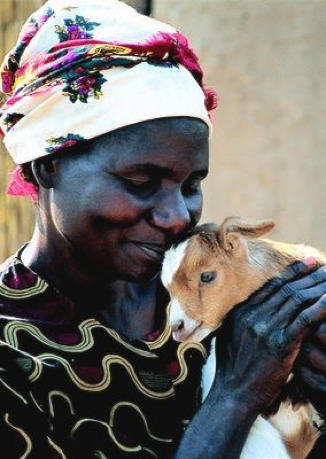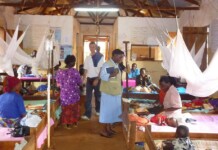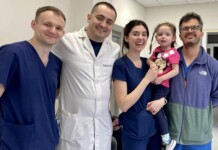 Do you want to give an imaginative gift and feed hungry children in Chicago or Shanghai at the same time? Now you can give the gift that keeps on giving for generations.
Do you want to give an imaginative gift and feed hungry children in Chicago or Shanghai at the same time? Now you can give the gift that keeps on giving for generations.
Heifer Project International (HPI) provides income-producing animals to people in nearly 40 countries. Shoppers buy an animal in honor of a friend or relative and send the recipient an attractive card describing the gift of hope being given in his or her name.
Gifts of animals, such as chicks, goats, sheep, rabbits, pigs, fish, bees and heifers, along with training in their care, are given to low-income families around the world. Holiday gift-givers can provide egg-bearing chickens for hungry kids in Kenya, or a milk-producing goat for a family in Peru. And there’s more: Every family who receives your gift will give one or more of its animal’s offspring to another family in need.
In 1957, Esther Craig set a goal of contributing a cow a year to the Heifer Project. Since she retired, raising money for HPI cows has become a year-round project. To raise the money to buy the animals, she pots plants and crochets, picks wild berries for jams and jellies. At 80, Esther says, “I just can’t imagine children without milk.”
Heifer Project International also has funded projects in 35 states and educates Americans about world hunger and the role of livestock in sustainable development.
For instance, in Chicago, worms are raised by inner-city teens in order to produce organic fertilizer to sell at Chicago’s Farmers Market. Catfish, raised in 55-gallon drums, are donated to local food banks. Kids have an alternative to gang activity, and as a bonus, learn business basics. Heifer Project’s three U.S. learning centers are visited by thousands of people each year.
For More Information Contact The Heifer Project: 855-948-6437
Visit their website at www.heifer.org



















